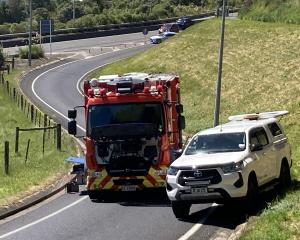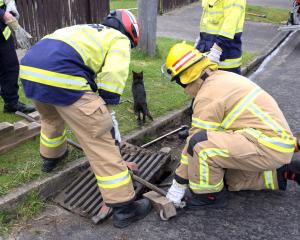A Maori legal centre has called on the Dunedin City Council to provide rates remission for Maori ancestral land not producing revenue.
Ngai Tahu Maori Law Centre senior solicitor Desiree Williams called for the council to introduce a policy on the issue, as other councils had.
Ms Williams said a ‘‘very minimal'' amount of land was involved, but a block owned by William and Mary Ellison, who accompanied her at the annual plan hearing, was an example.
She said the land involved was freehold land that had been passed down through generations, and was quite different from iwi-owned land.
The Ellisons had been ‘‘prolific ratepayers'' over the past 30 years on a 2.8ha block between Karitane and Seacliff.
It was owned by the Ellisons and three other people, but the others were all deceased.
The number of owners of the block was expected to swell exponentially when succession of the deceased owners took place.
The block was landlocked and inaccessible, and could not generate income or be leased, but the Ellisons had paid tens of thousands of dollars of rates.
The couple were not keen to abandon Maori land.‘‘Maori hold the view that they are inexorably connected to the land.
‘‘The catastrophic loss of Maori land which has taken place since colonisation has irreparably damaged the spiritual links of Maori with their whenua,'' Ms Williams said in her submission.
She said having no specific policy was causing ‘‘injustice and significant hardship'' for the local Maori population.
Blocks being used ‘‘should and do'' pay rates.
Mr Ellison said if there was revenue coming from a property there should be no remission.
Cr Kate Wilson asked staff if an interim report could be produced before next week's deliberations on what councillors described as a ‘‘compelling'' submission.
Chief executive Sue Bidrose said a report could be put together, though not by next week.
Asked about the scope of freehold land, Ms Williams said in the South Island it made up about half a percent of land mass.
In Dunedin, where there were blocks in Karitane, Waikouaiti and some on the Taieri, it made up less than quarter of a percent of land.
She expected only a quarter of that would seek remission.‘‘I would be surprised if you got two or three requests a year for remission.
''The Clutha District Council had a ‘‘really reasonable'' policy the council could consider, and a policy the law centre proposed was based on that model.














